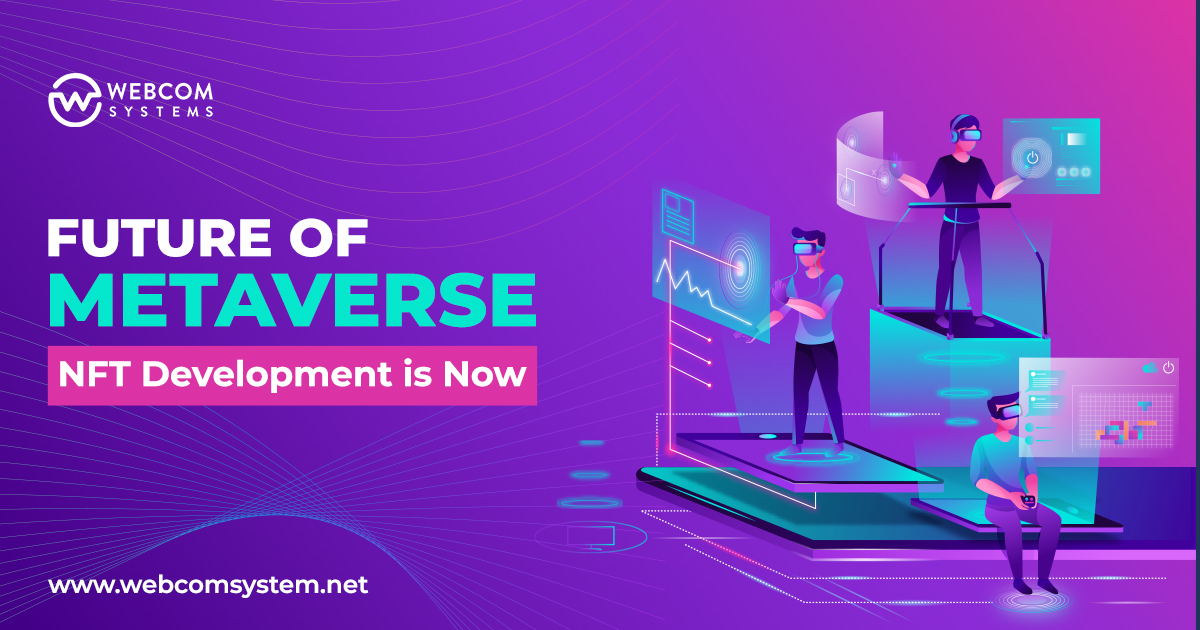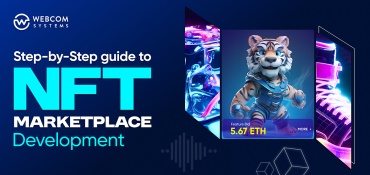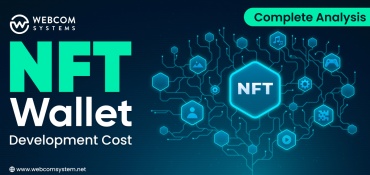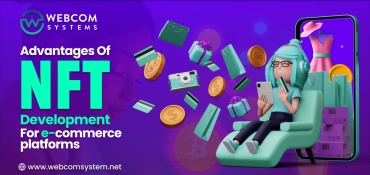The digital art and collectibles industry has seen a major transformation with the emergence of Non-Fungible Tokens (NFTs). In 2024, the NFT development landscape is poised for significant growth and widespread adoption. NFT token development services have the potential to expand the possibilities for artists, creators, and collectors, reshaping the landscape of ownership and authenticity in the digital domain. If you like the idea of creating a superior digital asset with great value, it’s important to get in touch with an experienced NFT Development Company as soon as possible.
This article explores the role of NFT development in the Metaverse, the benefits of NFT development, and real-world applications. It further discusses the factors shaping NFT’s future.
What is NFT Development?
Non-fungible tokens (NFTs) act as digital assets, representing ownership of specific items such as a piece of art, a collectible, and virtual real estate.
The NFT market is estimated to reach US$231.98 billion by 2030, with a CAGR of 33.7%. The Metaverse NFT market size is projected to reach multi-million USD by 2029, in comparison to 2022. These statistics suggest that NFT development and the Metaverse have significant potential for growth and disruption in various industries.
Benefits of Metaverse NFTs Development
NFTs are unique digital assets that offer a wide range of benefits beyond the traditional concept of ownership and value. The key benefits of integrating NFT development into your business are as follows.
- Authenticity: Metaverse NFT offers value by providing authenticity and ownership of digital assets. The unique identification assigned to each NFT simplifies the process of verifying ownership of the corresponding digital assets.
- Monetization: NFTs in the Metaverse have created new revenue streams for creators, designers, and gamers. Through NFT, creators can monetize their digital creations by selling them by taking advantage of the specific market value associated with each NFT.
- Interoperability: Metaverse NFTs have high levels of interoperability, enabling them to be easily deployed in virtual worlds and gaming platforms. This feature facilitates the transfer of ownership of digital assets between platforms. It also preserves the authenticity of the assets.
- Investment: Their uniqueness has made NFTs in the Metaverse popular as an investment option for collectors and investors. More people joining the Metaverse will likely increase interest in NFTs. This makes them more valuable over time.
- Enhanced Gaming Experience: NFT has played an important role in improving the gaming experience in the Metaverse. For example, players can use NFTs to customize avatars, weapons, and other assets. This makes their gaming journey more unique and exciting.
Also Read: Boost Your Crypto Venture with Stablecoin Development in 2024
Factors Shaping the NFT Future
-
Disruption in the Market for Art and Collectibles
The introduction of NFTs has disrupted the art and collectibles market. Traditional art and collectibles often had their place in physical spaces such as galleries and auction houses. However, NFT offers artists and collectors a new platform to showcase and exchange their digital creations. This democratization of the art world creates opportunities for emerging artists by empowering collectors to expand their portfolios beyond tangible assets.
-
Tokenization of Tangible Assets
NFTs have transformed the way we invest and trade real-world assets. NFT development services facilitate the tokenization of tangible assets such as real estate, valuable metals, and intellectual property. NFTs also enable fractional ownership, simplifying the complex procedures involved in buying and selling such assets.
-
Gaming and Virtual Reality Integration
Integrating NFT into gaming and virtual reality platforms empowers developers to create unique in-game assets that are available for players to buy, sell, and trade. This elevates the gaming experience by creating additional revenue for developers. Additionally, NFT allows players to truly own their virtual assets, adding tangible real-world value to their digital assets.
-
Brand Authenticity and Licensing
In consumer products, licensing, and brand authenticity are of utmost importance. A company specializing in NFT token development will ensure the authenticity of its products by creating limited-edition digital collectibles. These NFTs offer easy verification, safeguarding both the brand’s integrity and the consumer’s investment. Additionally, brands can use NFT to identify and reward loyal customers, creating a sense of exclusivity.
-
Cultural Preservation and Heritage
-
Digital Art and Collectibles
NFTs have become a popular way for digital artists to tokenize their work, providing buyers with unique and verifiable proof of ownership. This has transformed the art market in the Metaverse.
-
Gaming
In the Metaverse, NFTs are used to represent in-game assets, characters, weapons, skins, and other digital items. Players can truly own and trade these items across different games and platforms.
-
Virtual Real Estate
NFTs are utilized to represent ownership of virtual land and properties in the Metaverse. Users can buy, sell, and trade virtual real estate, creating a digital economy within the Metaverse. Utilize virtual real estate to host events, establish virtual businesses, or craft immersive experiences.
-
Music and Entertainment
Musicians and content creators can tokenize their work as NFTs. This allows fans to own unique pieces of digital content, concert tickets, or exclusive experiences.
-
Virtual Goods and Fashion
Fashion brands can create limited edition virtual wearables or accessories as NFTs, allowing users to express themselves in the digital space. Users can buy, sell, and trade virtual goods, enhancing their avatar’s appearance within the Metaverse.
-
Education and Events
NFTs can serve as tickets or access passes to virtual events, conferences, or educational programs within the Metaverse.
-
Identity and Authentication
NFTs can be used for digital identity and authentication, ensuring secure and verifiable access to virtual spaces or platforms. Users can prove ownership of virtual assets and maintain a consistent digital identity across various metaverse platforms.
-
Decentralized Finance (DeFi) in the Metaverse
NFTs can be used as collateral for loans or financial transactions within decentralized finance systems in the Metaverse. Virtual assets represented by NFTs can contribute to the broader DeFi ecosystem in the digital realm.
These real-world applications demonstrate the versatility of NFTs and the impact they can have in the Metaverse, extending beyond art and collectibles into various aspects of digital life.
Bottomline
With exceptional expertise and innovative ideas, Webcom Systems has emerged as a leader in this rapidly growing industry. We dedicate ourselves to constructing platforms that differentiate themselves from the competition through scalability, security, and user-friendliness.
Partner with us today to explore the future of Metaverse with superior NFT development solutions.
Also Read: Creating a Cryptocurrency Token with Solana Blockchain in 2024




